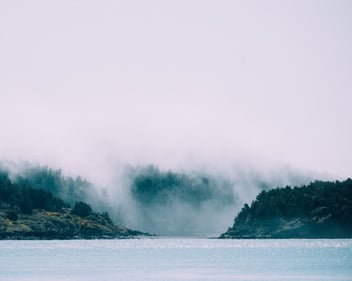by Lisa Hiton
As our environment becomes increasingly impacted by humans, our relationship to the...
Craig Santos Perez, award-winning poet and Guest Judge for our Nature & Environmental Poetry Competition, writes about the rhythms of the natural world and how we are deeply connected to our environment. “Writing place is an important aspect of my poetry. Ecopoetry is deeply rooted in place because it encourages us to connect to where we live or where we are from.”
Read on to learn all about his work with ecopoetry and his advice for writing a winning competition entry!
Yes, I have been teaching ecopoetry for ten years. I usually expand the definition of ecopoetry to include poetry about nature, wilderness, ecology, environmental justice, animals, waste, toxins, plastic, viruses, climate change, disasters, and more. I also explore how ecopoetry is poetry that embodies natural cycles, movements, sounds, etc., in the formal elements of the poem (e.g., the type of poem, its line breaks, stanzas).
Writing place is an important aspect of my poetry. Ecopoetry is deeply rooted in place because it encourages us to connect to where we live or where we are from. Guam and Hawaiʻi are two places that have shaped who I am and how I write. As a reader, I enjoy poetry that teaches me about other places I have never been.
Poetry is a creative expression of our deep thoughts and feelings, experiences and struggles, fears and anxieties, hopes and dreams. Poetry can help us reckon with the traumas of environmental injustice and climate change. Moreover, ecopoetry can be an empowering way to give us a voice to speak our truths. I dream of a day when future poets will address environmental concerns in their work and be brave enough to share their poems at rallies, protests, and climate change marches.
The wildfires in Maui, as well as wildfires around the world this year, have been tragic. The victims of the fires and those who lost family members and home may be processing this trauma for years (even generations). Poetry and other forms of creative expression like art and music can help our communities process, grieve, and heal by giving people a venue to articulate their feelings. Poetry is a creative act that can symbolically counteract the destruction around us.
To me, the most powerful ecopoems are personal, emotionally authentic, place-based, and attentive to the natural world. Poems that describe as many senses as possible (sight, sounds, smells, tastes, textures, etc.) are often more memorable.
About the Guest Judge: Craig Santos Perez is an indigenous Chamoru from Guam. He holds an MFA in Creative Writing from the University of San Francisco and a Ph.D. in Ethnic Studies from the University of California, Berkeley. He is the author of six books of poetry and the academic monograph Navigating Chamoru Poetry: Indigeneity, Aesthetics, and Decolonization (2022). He is also the co-editor of seven anthologies, including Geopoetics in Practice (2019) and Indigenous Pacific Islander Eco-Literatures (2022). He is a professor in the English department and affiliate faculty with the Center for Pacific Islands Studies and the Indigenous Politics program at the University of Hawaiʻi at Mānoa.

by Lisa Hiton
As our environment becomes increasingly impacted by humans, our relationship to the...

The term environmentalism, in the mainstream sense, evokes images of marooned polar bears on...

Environmental writing blends art and advocacy, inviting us to reflect on our relationship with the...
READ MORE